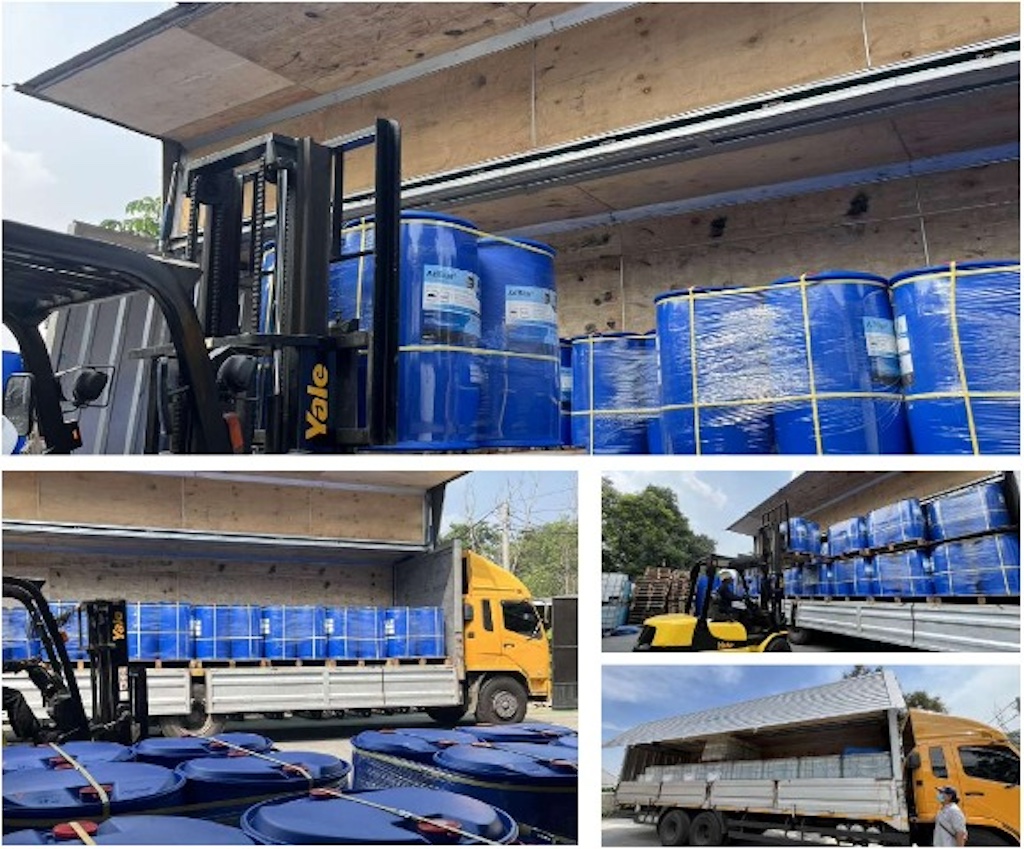Jakarta: Fuad Adi Siswoyo, Director of Strategy and Business Development at Hasgara International, revealed that the future of clean transportation is not only about electric vehicles, but also about reducing emissions from diesel vehicles, which will continue to dominate national logistics in the next 10 years.
This is because diesel-fueled vehicle emissions are a major challenge for Indonesia. From logistics trucks and mining vehicles to public transportation buses and ships, all contribute significant amounts of nitrogen oxides (NOx), microparticles (PM2.5), and carbon dioxide (CO₂) to the atmosphere.
In this regard, one technology that has been globally proven to reduce these emissions is the use of AdBlue, or Diesel Exhaust Fluid (DEF), a high-quality urea solution sprayed into the exhaust system of diesel vehicles using Selective Catalytic Reduction (SCR) technology.
The reaction chemically converts NOx gases into harmless nitrogen and water vapor. This is not just an additional technology, but a crucial part of achieving modern emission standards such as Euro 4, Euro 5, and Euro 6.
“The government has a crucial role to play in encouraging the widespread use of DEF, not only through regulation, but also through incentives, education, and distribution controls,” said Fuad, as quoted in a written statement, Thursday, July 3, 2025.

DEF Implementation Drive
As the manufacturer of AdBlue, Hasgara International believes the implementation of DEF in Indonesia needs to be accelerated immediately. Countries such as Japan, South Korea, Australia, and European countries have even mandated the use of DEF in all new diesel vehicles as a requirement for licensing and registration.
Unfortunately, although Indonesia has implemented the Euro 4 emission standard for new vehicles since 2022, DEF implementation remains sluggish and even poorly understood. Yet, with more than five million active diesel vehicles, including logistics fleets, public transportation, and ships, the use of AdBlue can have a direct impact on reducing NOx and particulate emissions in major cities.
“Without collaborative efforts from the government, industry players, and end users, we will be left behind in the race towards clean air and a low-carbon future,” he concluded.
According to Fuad, if Indonesia wants to achieve its emission reduction targets and improve air quality, implementing mandatory AdBlue use in new and existing diesel vehicles is a logical and urgent step.
“We are ready to fully support this by supplying high-quality, Indonesian-made AdBlue, both for the domestic market and for export. However, for a real impact, a regulatory framework, public campaigns, and distribution support from the central and regional governments are needed,” he emphasized.
Article Source: https://www.metrotvnews.com/read/b1oCV7Rz-ciptakan-transportasi-bersih-pemerintah-kudu-serius-pangkas-emisi-kendaraan-diesel

